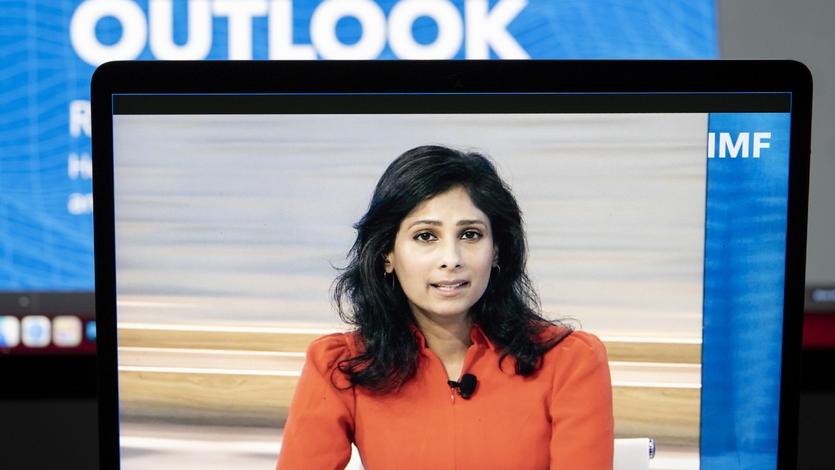 Gita Gopinath, chief economist of the International Monetary Fund, speaks during a news conference via video link on Oct 12, 2021. (PHOTO / XINHUA)
Gita Gopinath, chief economist of the International Monetary Fund, speaks during a news conference via video link on Oct 12, 2021. (PHOTO / XINHUA)
DAVOS, Switzerland - While the world economy faces headwinds, current growth forecasts offer a buffer against a potential global recession, the International Monetary Fund's No. 2 official said Monday.
Among the major threats to economic growth, IMF First Deputy Managing Director Gita Gopinath told Reuters that the conflict in Ukraine could escalate, adding: "You could have sanctions and counter sanctions".
Gopinath said in an interview on the sidelines of the World Economic Forum in the Swiss resort of Davos that the other challenges included inflation and a tightening of interest rates by central banks.
"So all of these provide downside risks to our forecast," Gopinath said, with reference to the IMF's 2022 growth forecast issued last month of 3.6 percent, a downgrade from a 4.4 percent estimate in January.
So all of these (inflation and a tightening of interest rates) provide downside risks to our forecast (3.6 percent) ... I would say at 3.6 percent there is a buffer.
Gita Gopinath, IMF First Deputy Managing Director
"I would say at 3.6 percent there is a buffer," she said, conceding, however, that risks are uneven around the world.
ALSO READ: IMF urges Asia to be mindful of spillover risks from tightening
Gopinath said inflation "will remain significantly above central bank targets for a while", adding: "It is very important for central bankers around the world to deal with inflation as a clear and present danger, that is something they need to deal with in a very forceful manner".
"Financial conditions could tighten much more rapidly than we've already seen," she added.
The US Federal Reserve is leading the charge among the largest central banks, with two rate hikes so far this year.
Its second, at half a percentage point, was the largest in 22 years. At least two more of that size are expected at coming meetings.
"What is very important is for the Fed to watch the data carefully and respond at a scale that's needed to deal with the incoming data," Gopinath said.
READ MORE: IMF warns of 'stagflationary' risks in Asia, cuts growth figures
"So if it turns out that inflation is especially broad ... is going up even more, they may need to react more strongly."


